William Watkins • Saturday, May 19, 2018 •
Last week the Supreme Court struck down provisions of the Professional and Amateur Sports Protection Act (PAPSA) that prohibit state authorization and licensing of sports gambling schemes. SCOTUS held that this statute violates the Constitution’s anticommandeering rule. The New York Times sums up the import of the decision as follows:
The decision seems certain to result in profound changes to the nation’s relationship with sports wagering. Bettors will no longer be forced into the black market to use offshore wagering operations or illicit bookies. Placing bets will be done on mobile devices, fueled and endorsed by the lawmakers and sports officials who opposed it for so long. A trip to Las Vegas to wager on March Madness or the Super Bowl could soon seem quaint.
Sam Staley • Saturday, May 19, 2018 •
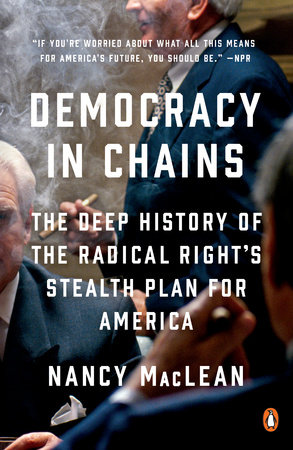 Even though the dust-up over Duke University historian Nancy MacLean in 2017 should have prepared me, I came away from my belated cover-to-cover read of Democracy in Chains: The Deep History of the Radical Right’s Stealth Plan for America even more deeply troubled than I expected. The book is a thoroughgoing attack on public-choice economics and the Nobel Prize–winning (1986) co-founder of the sub-discipline, James M. Buchanan. MacLean also sends broadsides toward Charles Koch and the Koch Foundation, but this extension of her argument is strained at best (perhaps a case of the tail wagging the dog?).
Even though the dust-up over Duke University historian Nancy MacLean in 2017 should have prepared me, I came away from my belated cover-to-cover read of Democracy in Chains: The Deep History of the Radical Right’s Stealth Plan for America even more deeply troubled than I expected. The book is a thoroughgoing attack on public-choice economics and the Nobel Prize–winning (1986) co-founder of the sub-discipline, James M. Buchanan. MacLean also sends broadsides toward Charles Koch and the Koch Foundation, but this extension of her argument is strained at best (perhaps a case of the tail wagging the dog?).
MacLean’s disingenuous polemic is far more problematic than her obvious and shallow misrepresentations of leading scholars, the libertarian movement, and the academic discipline of public-choice economics. While dozens of MacLean’s critics have weighed in, two fundamental flaws in her work haven’t received enough discussion or play. These errors, in my opinion, were severe enough that her book manuscript would not have been accepted as a graduate thesis or dissertation in the social sciences. If this book represents the state of art in the research and critical thinking in her field, History as an academic discipline is in serious intellectual trouble.
Alvaro Vargas Llosa • Friday, May 18, 2018 •
 Given that Venezuela monopolizes whatever interest there is in Latin America these days, we pay insufficient attention to another tyranny—that of Daniel Ortega. Yes, I am talking about the Sandinista who tried to impose a communist regime in Nicaragua in the 1980s and came back to power eleven years ago.
Given that Venezuela monopolizes whatever interest there is in Latin America these days, we pay insufficient attention to another tyranny—that of Daniel Ortega. Yes, I am talking about the Sandinista who tried to impose a communist regime in Nicaragua in the 1980s and came back to power eleven years ago.
The Nicaraguans have taken to the streets to demand his resignation and that of his wife, Rosario Murillo, who is his vice president. She is the object of as much resentment among the population as he is. Murillo is known for having disowned her own daughter, Zoilamérica Narváez, who at the end of the 1990s accused her stepfather, Daniel Ortega, of having sexually abused her beginning in her childhood. Zoilamérica lives in exile in Costa Rica; the stepfather, on the other hand, rewarded the betrayal of the mother by conferring on her enormous power once he regained the presidency. The couple has been in the government since 2007 thanks to the fact that in 2011 they used the subservient courts to legalize an unconstitutional re-election and three years later they forced the Congress to allow the permanent re-election of the president.
Mary Theroux • Wednesday, May 16, 2018 •
 Less than a month ago, President Trump’s nominee for the VA head chose to withdraw his name from consideration as allegations mounted—which he vehemently denied—of his having created a “toxic” work environment and assorted other peccadillos. Meanwhile, most of us have lost count of how many members of Congress have resigned due to allegations of sexual harassment of various degrees, some proven, some not, including, for example, Al Franken, who issued this mea culpa:
Less than a month ago, President Trump’s nominee for the VA head chose to withdraw his name from consideration as allegations mounted—which he vehemently denied—of his having created a “toxic” work environment and assorted other peccadillos. Meanwhile, most of us have lost count of how many members of Congress have resigned due to allegations of sexual harassment of various degrees, some proven, some not, including, for example, Al Franken, who issued this mea culpa:
The first thing I want to do is apologize: to [accuser] Leeann, to everyone else who was part of that tour, to everyone who has worked for me, to everyone I represent, and to everyone who counts on me to be an ally and supporter and champion of women.
Randall Holcombe • Monday, May 14, 2018 •
 Many readers will know that the Currency and Foreign Transactions Reporting Act of 1970 requires that financial institutions must keep records of cash transactions summing to more than $10,000 in one day and report suspicious transactions to the federal government. In addition, people coming into the United States from foreign countries (including US citizens) must declare cash or other negotiable instruments they are bringing into the country if the amount exceeds $10,000.
Many readers will know that the Currency and Foreign Transactions Reporting Act of 1970 requires that financial institutions must keep records of cash transactions summing to more than $10,000 in one day and report suspicious transactions to the federal government. In addition, people coming into the United States from foreign countries (including US citizens) must declare cash or other negotiable instruments they are bringing into the country if the amount exceeds $10,000.
Monitoring large holdings of cash and cash transactions provides a way for the government to identify people who may be engaging in illegal activity. These reporting requirements open the potential for government to abuse them, especially because of civil asset forfeiture laws that allow governments to confiscate assets without proof of any wrongdoing, and require the owners of the assets to prove they were not associated with any illegal activity to get their assets back. That’s an important point, but not my point here.
Randall Holcombe • Sunday, May 13, 2018 •
 You may have seen the uproar caused by an American student wearing a Chinese-style dress to her prom, bringing her widely publicized criticism that she was guilty of cultural appropriation. What is cultural appropriation?
You may have seen the uproar caused by an American student wearing a Chinese-style dress to her prom, bringing her widely publicized criticism that she was guilty of cultural appropriation. What is cultural appropriation?
This commentary says cultural appropriation is “taking intellectual property, traditional knowledge, cultural expressions, or artifacts from someone else’s culture without permission. This can include the unauthorized use of another culture’s dance, dress, music, language, folklore, cuisine, traditional medicine, religious symbols, etc.”
Following that definition, it would seem that American (and perhaps more broadly, Western) culture is the most appropriated culture in the world today. Everywhere in the world, people have adopted Western styles of dress, music, language, and cuisine.
Robert Murphy • Saturday, May 5, 2018 •
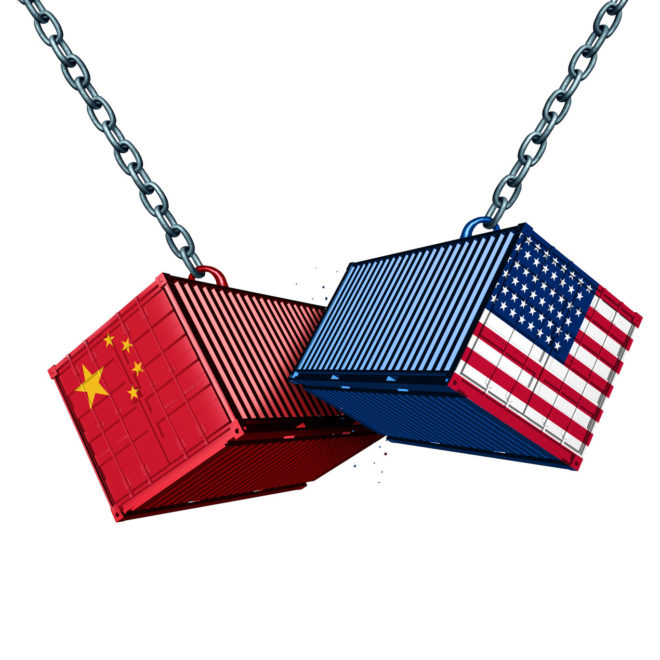 In a recent Wall Street Journal op-ed, Harvard economist Robert Barro understandably took aim at President Trump’s faulty mercantilist criticism of free international trade. In contrast to Trump’s view, Barro argued that imports are “things we want” whereas exports are “the price we have to pay” to obtain them. Although Barro’s statements are a useful way to get novices to think about trade, they can be misleading, and in this case actually did lead a WSJ editor to write something incorrect. All too often, in their zeal to defuse hysteria over America’s trade deficit, free-trade economists prove too much, using arguments that suggest countries with trade surpluses are somehow getting ripped off. In this post, I’ll spell out the WSJ mistake, and offer a clearer way to think about international trade.
In a recent Wall Street Journal op-ed, Harvard economist Robert Barro understandably took aim at President Trump’s faulty mercantilist criticism of free international trade. In contrast to Trump’s view, Barro argued that imports are “things we want” whereas exports are “the price we have to pay” to obtain them. Although Barro’s statements are a useful way to get novices to think about trade, they can be misleading, and in this case actually did lead a WSJ editor to write something incorrect. All too often, in their zeal to defuse hysteria over America’s trade deficit, free-trade economists prove too much, using arguments that suggest countries with trade surpluses are somehow getting ripped off. In this post, I’ll spell out the WSJ mistake, and offer a clearer way to think about international trade.
William Shughart • Friday, May 4, 2018 •
If you wonder why prices at the gas pump have been climbing recently and are expected to continue to climb, look no further than the sharp drop in crude oil production in Venezuela, the Saudi Arabia of the Americas.
Counting its huge tar-sands deposits, Venezuela has more crude oil than any other country in the world. Nevertheless, oil output in that failed socialist state has fallen to its lowest level in nearly 30 years, largely because of mismanagement and corruption. The production collapse there coincides with announcements by Saudi Arabia and Russia of coordinated efforts to bolster world oil prices, which have climbed more than 60 percent since last summer, reaching a three-year high.
U.S. consumers are among the biggest losers because we use more oil than any other place on Planet Earth. If domestic gas prices rise by $1 per gallon, the economic gains from last year’s Tax Cut and Jobs Act will be wiped out completely. Hurt most by such a price spike, of course, are low-income households who spend proportionately more of their budgets on fuel for transportation.
Saudi Arabia and Russia have been able to keep their own oil production levels relatively stable because of the unfortunate, but entirely predictable events in Venezuela, all the while benefitting from the rise in world oil prices.
Raymond March • Thursday, May 3, 2018 •
 Goldman Sachs analysts recently asked the question, “Is curing patients a sustainable business model?”, in a report entitled The Genome Revolution. The report outlined profit strategies for biotechnology companies engaged in gene therapy, which attempts to replace defective genes to correct genetic disorders. CNBC has since obtained the report and released the answer:
Goldman Sachs analysts recently asked the question, “Is curing patients a sustainable business model?”, in a report entitled The Genome Revolution. The report outlined profit strategies for biotechnology companies engaged in gene therapy, which attempts to replace defective genes to correct genetic disorders. CNBC has since obtained the report and released the answer:
The potential to deliver ‘one shot cures’ is one of the most attractive aspects of gene therapy, genetically-engineered cell therapy and gene editing. However, such treatments offer a very different outlook with regard to recurring revenue versus chronic therapies… While this proposition carries tremendous value for patients and society, it could represent a challenge for genome medicine developers looking for sustained cash flow.
Some have taken the report to be an “outright acknowledgment from the financial services industry that curing diseases with a single treatment is not profitable.” Others allege the report demonstrates “curing patients is bad for business” more broadly.
Randall Holcombe • Wednesday, May 2, 2018 •
In close elections, any slight advantage might be responsible for determining the outcome, and it might be that the red party has a slight advantage over the blue party… because it’s the red party.
An article reporting on studies by two psychologists suggests that color influences behavior and that red is a winning color. In one study from the 2004 Olympics, where competitors in combat sports like boxing and taekwondo were randomly assigned either red or blue kits, they found that those assigned the red kits were more likely to win than those assigned the blue.

















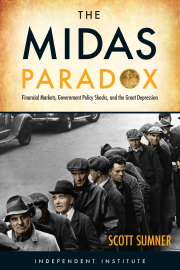


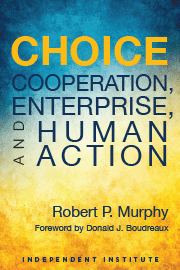
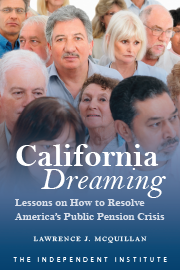


 Even though the dust-up over Duke University historian
Even though the dust-up over Duke University historian  Given that Venezuela monopolizes whatever interest there is in Latin America these days, we pay insufficient attention to another tyranny—that of Daniel Ortega. Yes, I am talking about the Sandinista who tried to impose a communist regime in Nicaragua in the 1980s and came back to power eleven years ago.
Given that Venezuela monopolizes whatever interest there is in Latin America these days, we pay insufficient attention to another tyranny—that of Daniel Ortega. Yes, I am talking about the Sandinista who tried to impose a communist regime in Nicaragua in the 1980s and came back to power eleven years ago. Less than a month ago, President Trump’s
Less than a month ago, President Trump’s  Many readers will know that the
Many readers will know that the  You may have seen the uproar caused by an American student wearing a Chinese-style dress to her prom, bringing her widely publicized criticism that she was guilty of cultural appropriation. What is cultural appropriation?
You may have seen the uproar caused by an American student wearing a Chinese-style dress to her prom, bringing her widely publicized criticism that she was guilty of cultural appropriation. What is cultural appropriation? In a recent
In a recent  Goldman Sachs analysts recently asked the
Goldman Sachs analysts recently asked the